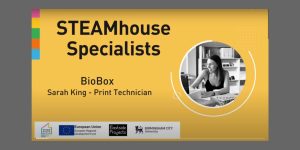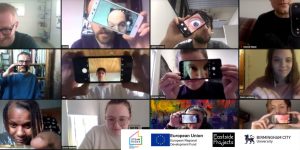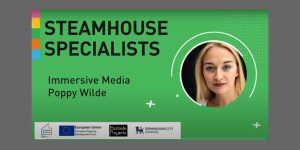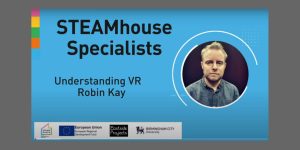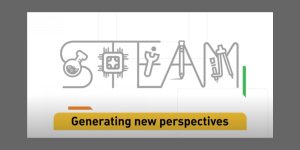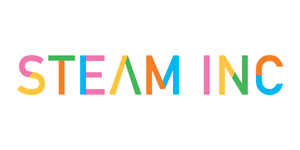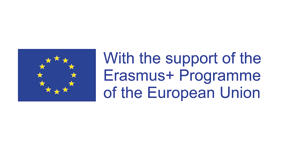Rapid change requires rapid adaptability, and our capacity to adapt is informed by our ability to integrate diverse approaches. To accommodate this, higher education has needed to transcend an historically embedded approach to learning that has seen different types of knowledge segregated across disciplinary silos. Policy ambitions throughout Europe and across the world have recognized that knowledge in science, engineering and mathematics need to be nurtured to engage with rapid advances in technology. However, it has also become increasingly evident that art as a unique and adaptive form of knowledge should also be combined with our approach to STEM education. Art thinking offers a holistic way of understanding complex connections and can act as a translator between different communities of knowledge. By including art, STEAM education ensures that there is an interdisciplinary switchboard operator actively integrating different approaches to solving the same problems we face today.
Whilst arguments for supporting STEM are well rehearsed, STEAM is becoming more and more prevalent in the higher education sector. This is not only as a way of ensuring that students acquire the multi- trans- and inter-disciplinary skills required for the future jobs market, but also to increase intellectual curiosity and, through collaborative approaches, to prime them in developing solutions to multi- aspect global challenges. Furthermore, a higher education institution with STEAM at its centre, is well positioned to develop new and responsive curricula that move beyond the traditional segregation of faculties and schools found in most European universities.
Credits
Partners: Ars Electronica (AT), Science Gallery Dublin / Trinity College Dublin (IE), Birmingham City University (UK), University of Arts London: Central Saint Martins (UK), Aalto University (FI), Technical University Dresden (DE), University of Amsterdam (NL).
Participating gardens: Garden Birmingham, Garden Dublin, Garden Dresden, Garden Helsinki
STEAM Inc. has been funded with the support of the European Union and the Erasmus+ Programme.

